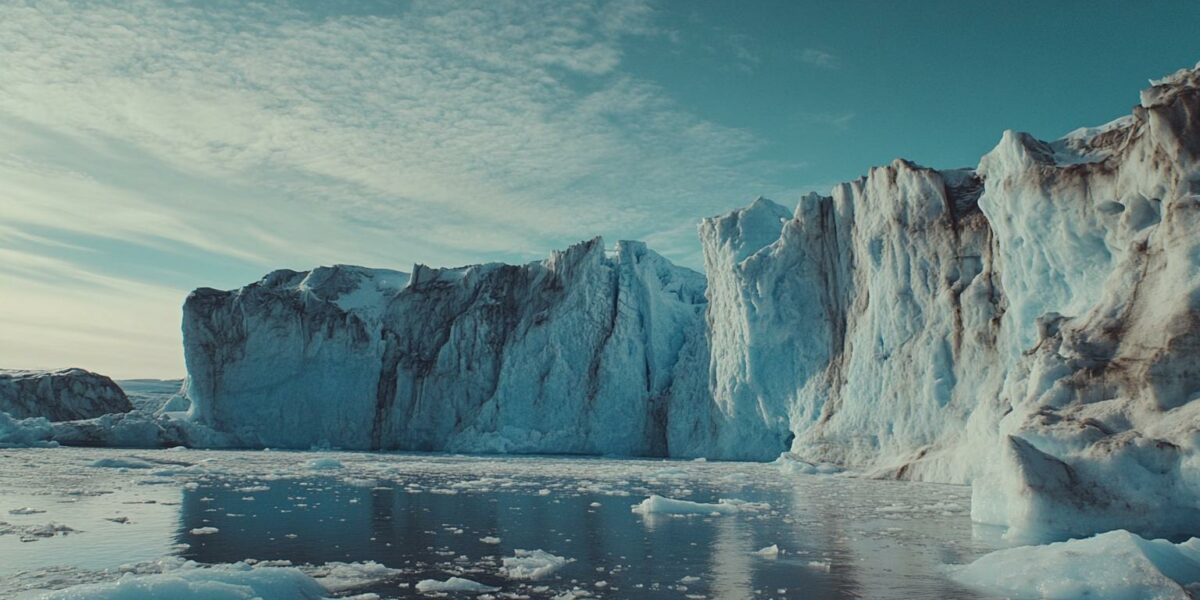Svalbard’s Record-Breaking Summer
This year’s summer on Svalbard, a remote Arctic archipelago, has been the warmest ever recorded. Meteorologist Daan van den Broek revealed that August 2024 hit unprecedented temperatures, averaging 11°C. This surpassed July’s historical records, making it a summer to remember for all the wrong reasons.
Van den Broek, analyzing data from the Norwegian climate research service, highlighted that Longyearbyen experienced an exceptionally warm period. This small town, located at 78°N, saw temperatures never before recorded in its history.
Adding to the anomaly, the summer of 2024 was notably wetter. With nearly 50 mm of rainfall in July alone, the region saw more than twice its usual precipitation, which stands at a climatological norm of 20 mm.
These conditions have significant ecological implications. The unusual warmth and rain contribute to accelerated glacier melting, threatening the fragile Arctic ecosystem.
Impact on Glacial Melting
High temperatures have a dramatic effect on Svalbard’s glaciers. Experts warn that these glaciers are melting at an alarming rate, five times faster than normal, according to recent NASA satellite images. This rapid melting could lead to the eventual disappearance of these glaciers.
Professor Jemma Wadham from the Arctic University of Norway emphasized that Svalbard is a critical area for Arctic warming. The accelerated melting poses severe threats to the local wildlife and the broader ecosystem.
Key points to note include:
- The average temperature in August 2024 was 11°C.
- July’s rainfall almost doubled the normal levels.
- NASA data shows glaciers melting five times faster than usual.
These indicators highlight the urgent need for addressing climate change impacts in the Arctic regions.
Consequences for Arctic Wildlife
The warming trend in Svalbard has far-reaching consequences. As glaciers melt, habitats for native species are rapidly disappearing, disrupting the delicate balance of Arctic life. Species such as polar bears and seals are particularly vulnerable.
Moreover, the increased rainfall and warmer temperatures can lead to changes in vegetation patterns, further affecting food sources for wildlife. This chain reaction emphasizes the interconnectedness of the Arctic ecosystem.
Researchers stress the importance of continuous monitoring and research to understand these changes. The data collected can help predict future trends and inform conservation efforts.
As the Arctic continues to warm, the survival of many species hangs in the balance. The consequences of this summer’s extreme weather are a stark reminder of the pressing issues facing our planet.
Global Implications
The changes in Svalbard are not isolated. They are part of a broader pattern of global climate shifts. The Arctic acts as a barometer for global warming, and the trends observed here are indicative of larger environmental challenges.
Scientists warn that what happens in the Arctic doesn’t stay in the Arctic. The melting of glaciers contributes to rising sea levels worldwide, affecting coastal communities far from the polar regions.
International cooperation and policy changes are crucial to address these global impacts. Environmental organizations and governments must work together to mitigate the effects of climate change.
The record-breaking summer in Svalbard serves as a wake-up call. It underscores the need for urgent action to protect our planet’s future, ensuring that such extreme weather events become less frequent.



jasmine
Is there any hope for reversing or slowing down this process?
harper
How reliable is the data from NASA? Are there any other sources confirming this?
rosie_solar
Unbelievable! What’s next, palm trees in the Arctic? 🌴😂
felix
It’s really sad to think about the impact on polar bears and seals. We need to act now!
Olivia
50mm of rain in July is crazy. How are the local communities coping with these changes?
Lillian
Does this mean sea levels are going to rise faster than expected?
joseph
Thank you for shedding light on this issue. More people need to be aware of what’s happening.
SamuelQuantum
Wow, 11°C in the Arctic? That’s insane!
AvaPrism0
This is so alarming! What can we do to help mitigate this crisis? 😢